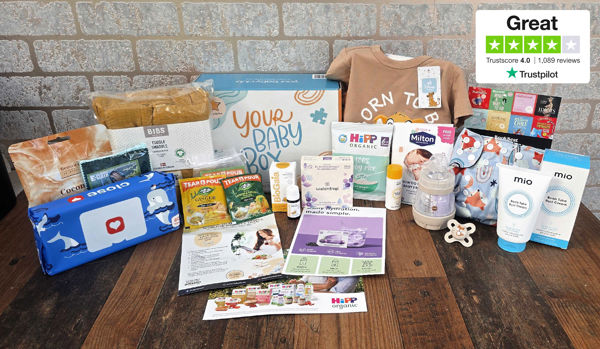The neonatal intensive care unit (NICU) journey is complex and emotionally challenging for parents. It is common for parents to struggle with their mental health during and after their NICU journey.
Research has shown that up to 40% of parents experience postnatal anxiety, 40% of parents experience PTSD, and 14% experience postnatal depression; in a survey by Bliss, 39% of parents said that they felt they had struggled with their mental health but had not accessed support or a diagnosis. The rates of mental health issues after NICU are incredibly high, and we need to be talking about this to help us support people who are struggling in silence.
In this blog post, we delve into some of the reasons why parents often face mental health challenges in and after the NICU and shed light on this critical issue.
Traumatic Birth ExperienceThe birth of a baby requiring NICU care can be traumatic for parents. The unexpected nature of the situation, the fear for their baby's life, their own life, and the medical interventions involved can leave a lasting impact. There are also issues in the hospital units, both in the maternity wards and the NICU, where care for the Mothers is not married up; they often slip under the radar, not receiving proper physical care (food or medication) as they often want to be with their baby as much as possible and not on the maternity ward which leads to Mothers not accessing the basic care that they need to heal.
The emotional distress experienced during the NICU stay, fear for life, and illness, coupled with the physical recovery from childbirth, can contribute to the development of mental health issues such as anxiety, depression, and post-traumatic stress disorder (PTSD) in parents.Uncertainty and Fear
The NICU journey is marked by uncertainty and fear. Parents are confronted with the unpredictable nature of their baby's condition and often face a barrage of medical information and terminology that can be overwhelming and difficult to digest. The constant worry about their child's health and potential long-term medical issues can lead to chronic stress and anxiety. The fear of the unknown, combined with the need to make difficult decisions regarding their baby's care, can further exacerbate parental mental health struggles.Lack of Control
Parents in the NICU often feel a sense of helplessness and lack of control over their baby's well-being. They are required to entrust their child's care to a team of medical professionals, which can be difficult for parents who want to feel like the primary caregivers. At a gut level, it can feel incredibly unnatural to not be able to do what you wish with your own baby, it is primal and parents can find it difficult to be out of control when it comes to the wellbeing of their child.
The constant monitoring and medical interventions may leave parents feeling detached and disconnected from their role as parents, leading to feelings of guilt, frustration, helplessness and powerlessness. Parents may try to overcompensate for those feelings of not being in control by overly checking, monitoring, documenting, researching and ruminating. These feelings can stay with you long after the baby is home.Emotional and Social Isolation
The NICU environment can be isolating for parents. The separation from their baby due to medical procedures or limited visitation policies (especially those who experience NICU during the pandemic) can intensify feelings of loneliness and sadness. Parents can feel disconnected from their babies and find it hard to bond, some parents are not allowed to hold their babies or seem them until they are medically stable, which is incredibly painful and disconnecting.
Additionally, parents may find it challenging to relate to friends and family members who have not experienced the NICU journey, which can further contribute to a sense of isolation, baby groups can become difficult, often feeling out of place. The lack of understanding and support from their immediate social circle can compound the emotional burden on parents.
Often friends or family try to make NICU parents “feel better” or “fix” their feelings, by using statements such as “at least they are here and healthy now”, however this can further invalidate or minimise a NICU parents struggles and disconnect them from feeling able to access support where they need to express their feelings.Role Strain and Transition
The transition from the NICU to home is a significant adjustment for parents. The NICU is a place that can feel scary and medicalised, but it can also become a bubble of safety, where babies are monitored closely and looked after by medical professionals around the clock.
Coming home may feel daunting or worrying, as well as exciting and joyful. Parents may face challenges in caring for their baby's ongoing medical needs at home, managing developmental delays, and integrating their baby's care and appointments with their daily routines. The added responsibilities and the constant vigilance required can lead to exhaustion and feelings of being overwhelmed, which can, in turn, impact parental mental health.
It also often isn't until parents are home, once they are out of survival mode and the dust settles, that they feel the effects of being on the unit. The feelings and thoughts can come in thick and fast. This can happen weeks, months or even years after. Commonly, parents may struggle around their child’s birthday or trauma anniversaries.Grief and Loss
Parents in the NICU may experience a sense of grief and loss for the "normal" birth and postnatal experience they had envisioned or expected, this is a form of grief called disenfranchised grief, which is often not recognised by society, but involves all the same feelings involved in processing a loss. Parents can grieve their third trimester, being pregnant, their bump, their birth plan, the way they birthed, the fact that they were unable to hold their baby after birth, breastfeeding, missed moments, first moments etc. As a result, parents may feel jealousy or resentment towards other parents who are able to have those experiences, this does not mean that they are “bad people” for feeling this way, but that they are grieving a loss and living with shattered expectations which can feel really difficult to process.The emotional toll of witnessing their baby's struggles, along with the potential long-term effects of their medical condition, can evoke feelings of sadness, disappointment, and even guilt, a lot of Mothers talk about feeling like their body failed them or that they failed their baby in some way. Leaving your baby on the NICU and coming home feels incredibly jarring and overwhelming and with that can come many feelings of guilt and grief. Processing these emotions and navigating the complex emotions of joy and sorrow can be incredibly challenging for parents.Parents can also grieve their identity, who they were before this traumatic situation, it can find hard to find yourself in becoming a parent, in matrescence at the best of times, but adding in trauma and the overwhelm of NICU, it can feel like the ground has been shaken beneath your feet.Recognising the struggles parents face with their mental health after the NICU is essential for providing appropriate support and resources. The traumatic birth experience, uncertainty, lack of control, isolation, role strain, and grief all contribute to the mental health challenges parents may encounter. By fostering understanding, empathy, and access to comprehensive support services, healthcare providers and communities can help parents navigate these difficulties and promote their well-being during this sensitive time.We are here to help and support you, no matter where you are on your journey.
Helpful resources:
Practical support to offer NICU parents: Miracle Moon - Practical support for friends in NICU (squarespace.com)
NICU stay packing list: Miracle Moon - NICU Stay Packing List (squarespace.com)
Free webinar on identity after NICU: Identity Workshop — Miracle Moon
Workshop on navigating birthdays after birth trauma/ NICU: Navigating Birthdays after NICU — Miracle Moon
Articles shown are a mixture of informative pieces, anecdotal accounts and professional advice from our panel of Bloggers, Writers and Experts. The views and opinions expressed in these articles are those of the authors and do not necessarily reflect the official view of this site.







